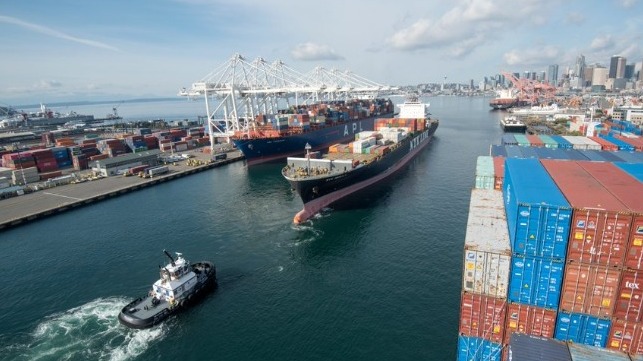U.S. West Coast Seaports Issue Joint Warning on Tariff Impacts

This week, the six largest U.S. West Coast ports - Port of Long Beach, Port of Los Angeles, Port of Oakland, Port of Portland, Port of Seattle and Port of Tacoma - sent an open letter to President Donald Trump to warn of the long-term impact of the trade war between China and the United States. These six seaports handle about 38 percent of America's exports to China, and they noted declines in American cargo volumes bound for the Chinese market.
The ports in the group and their partners employ hundreds of thousands of workers, and they handle cargo to and from every American state. Together, they warned of "irredeemable economic harm to employers, workers, residents and international partnerships along the entire coast and throughout the country" from bilateral tariff hikes.
The impact on exporters is already being felt, the ports said. Wheat exports to China from the Columbia River basin have effectively stopped. Soybean and grain exports to China from California have all but ceased. Many food and agricultural commodities exported to China from the ports of Seattle and Tacoma have fallen by half.
"We support a balanced trading relationship with our global partners but are deeply concerned that the continued imposition of ever-increasing tariffs leads to higher costs on U.S. businesses and consumers and loss of valuable markets without any long-term strategic benefit," the ports said. "We urge you to pursue fair, mutually beneficial trade agreements that open new market access opportunities, create a level playing field for America businesses, and protect our workers and the environment."
It is not the first time that the ports included in this group have warned of the negative effects of tariffs. The American Association of Port Authorities (AAPA) has also expressed concern with each increasing round of threats from Washington. "AAPA is very concerned about the President’s renewed threat to increase tariffs on Chinese goods, and the expected actions that the Chinese government will make in retaliation,” said Susan Monteverde, AAPA’s vice president of government relations, reacting to a tariff announcement issued August 1.
